|
To Whom It May Concern: Why is it that when there is a death by disease or accident, there is awareness raised throughout the community but when there is an intentional death, there is silence? Recently, as we are aware, there has been an increase in the number of suicides at high schools throughout Westchester County, New York. Legally, toying with the word “suicide” is dangerous, so instead it seems as if we have chosen not to address it at all in hopes to avoid conflict. Maybe people also believe that by not talking about it, the pain will go away since we aren’t having the thought in the front of our minds constantly. All of these suspicions are completely wrong. Growing up, people want to hide factors such as mental health conditions to young kids and teenagers because it can potentially worry them or maybe thinking that since of the age, the child won’t be able to process this thought well. In a high school, it is completely understood that all of these factors may come into play but it is not understood that there are other things that the administration can do to support the cause and raise awareness but they are not. It is never okay to silence an incident like this and pretend like nothing happened as we all go about our daily lives. We are here to end the silence. If you think about it from the point of view of a family member or close friend, it is heartbreaking to lose someone who held a fraction of your heart. It makes it even worse that many schools are doing nothing to try to relieve the pain in any sort of way. The guidance counselors and psychologists say that they are around 24/7 for us students to go to and talk about how we are feeling, but what does it really say about the school when, the next day, the death is mentioned only once and seemed like an obligatory address, not even enough to commemorate the loss we have all just suffered. As attending students of a school that has lost students to suicide, we understand the pros and cons and legal issues involved with this situation but it is not in any way acceptable that this event passes without any acknowledgement except the day it happened. We know that for the sake of this students parents and their security, they may not want an assembly showcasing the tragedy, and we are not asking for an assembly or anything of that nature to be addressing that directly. What we are asking is that we show some love and acknowledgement all around the school and to have an assembly to honor people with mental health conditions, to show that everybody is cherished and remembered in different ways and to lastly show that there are ways to help and potentially prevent extreme measures having to be taken. After all, our school motto is “Acknowledge, Respect, and Unite,” so we need to maintain our stance on that saying, especially during a hardship like this. Every individual handles grieving differently, but the worst way to handle it, is for the feelings, whatever they may be, to stay festering inside of one's mind. It is prominent that many students are upset at not only this unfortunate event, but that the school’s lack of attention to it (personally speaking). The silence needs to be ended, and if the school cannot talk about mental health or mental illness in a mature and sensitive way to the students, a few of us are willing to go beyond our high school and onto a national organization which we have already reached out to. The goal is to help raise awareness and make sure people know that traumatic events like this can be prevented. There are always people that will listen, even if it is uncomfortable to talk about mental health conditions. Growing up in a family that has had/have a couple of people with mental health issues, it was hidden from me all of my life until recently I had to do my own digging to help the facts become uncovered. It is obvious that my family did not want to talk to/ open up to me nor each other about the serious issues going on and I have had enough of that at home and I will not stand for it at school either. There is nothing to hide from people about a chemical imbalance of the brain which is uncontrollable. The serious issue that we face in our society is that mental health conditions are more often than not, labeled as a flaw or problem, when in fact it is quite the opposite. By being silent we are feeding into the stigma that a mental illness is a problem or something to fear, when in reality the statistics show that someone living with a mental health condition is much more likely to be a victim of circumstances. Talking about this issue to students and young adults is very touchy but there are ways to properly go about it. The road to recovery or any healing process is something that people need support with and which is why our school needs to take this almost as a wake-up call and educate people on mental health disorders and the facts of the matter that go along with it. Not all students may feel this way, but I am speaking on behalf of the students who are upset by the recent events. Once again, we are not asking that the school addresses the recent death, we are just hoping to raise awareness and help the healing process for friends and family because it is contemptuous for a life to be lost and make it seem like nothing happened. It is not natural for people to recover from such a traumatic experience at such a young age quickly or quietly. This calls for a great need of support in this community and it seems to be that a lot of people are handling this in the wrong way. Hopefully there is a solution that can be negotiated to benefit both sides of the spectrum. Thank you. Respectfully, A Concerned High School Student The author of this letter has chosen to remain anonymous. Conquer Worry obtained permission to print before posting the letter.
0 Comments
Guest post by Michelle Peterson Edit and Blog Post Design by Christy Zigweid Photo by karosieben via Pixabay made using @WordSwagApp Addiction comes with many risks, including impulsive or dangerous behavior, health issues, and overdose, but many fail to realize how a serious addiction can have a fatal chain reaction that could lead to suicide. The link between addiction and suicide is a strong one, according to many studies done over the years. One such study showed that the strongest predictor of suicide is alcoholism, a disease which carries depression along with it; either alcohol exacerbates symptoms of depression that were already present, or it has a dark effect on moods and can lead to isolation, violence, or a slow decline in the individual’s ability to function daily. For some, substance abuse is a way to self-treat depression, anxiety, stress, or emotional pain from big life changes, such as a divorce or death in the family. It may be the only thing that helps the individual sleep or cope with everyday events, but the truth is, drugs and alcohol are only making things worse behind the scenes. It’s estimated that the suicide rate among those who suffer from substance abuse issues is as high as 45%, yet it’s still difficult for many people to start the conversation with a loved one who is at risk, in part because the subject is so taboo in our society. We are afraid to bring up the word “suicide” for fear that it will be suggestive, or that it will offend the individual at risk. Another issue is that not everyone knows what to look for. Even trained professionals may have a hard time diagnosing someone with a substance abuse problem--or with depression--and establishing a safe place for the individual to talk openly about their feelings. Photo via Pixabay by Unsplash Although warning signs of addiction can vary from person to person, there is a general list to be on the lookout for. It can be especially difficult to differentiate between warning signs and typical changes in mood and behavior when a teenager is concerned, so be aware that if you think these signs are present in a loved one, it’s important to talk to them about it before you make assumptions. Bringing up your concerns won’t put ideas into their head about suicide; if they were already thinking about self-harm, however, having the word out in the open could be enormously helpful in moving toward a healthy path. Some of the most common signs include:
In talking to a loved one about your concerns, one of the most important things to remember is not to introduce guilt. Being judgmental will only make the individual feel worse, and it’s likely that if they do have a substance abuse problem or are having thoughts of suicide, they already suffer from low self-esteem or feel isolated. Let them know that they are not alone, and listen with a sympathetic ear. Statements such as “I’m so sorry you’ve been feeling that way” are particularly effective. If your loved one admits there is a problem but doesn’t feel comfortable talking to you about it, that’s okay. You can still offer to help them find a counselor, group therapy, or healthcare professional to aid them in recovery. If you feel self-harm is an immediate danger, don’t leave the individual alone. Stay with them and call for help, and, if possible, remove any items that could be used as weapons or cause injury from the area. If you are having thoughts of suicide, please call 911 or the National Suicide Prevention Lifeline at 1-800-273- (TALK) 8255 About the Author Michelle Peterson has been in recovery for several years. She started RecoveryPride.org to help eliminate the stigma placed on those who struggle with addiction. The site emphasizes that the journey to sobriety should not be one of shame but of pride and offers stories, victories, and other information to give hope and help to those in recovery.
Article by Steve Johnson Edited by Maureene Danielle Post design by Christy Zigweid Image by tiyowprasetyo via Pixabay CC made using @WordSwagApp In the U.S., suicide is the 10th leading cause of death, and it claims “more than twice as many lives each year as homicides.” There are certain behaviors and situations that can add to suicidal thoughts. Losing a loved one, losing a job, or breaking up with a loved one are just a few situations a person may find themselves in that add unneeded stress to their life. Drug abuse, addiction, or mental illness may also add to, or be a part of, suicidal thoughts and feelings. There are many things you can do to help a struggling suicidal individual, but if you’re struggling with how to help someone you care about, these five ideas can help you be there for your loved one in a meaningful way. 5 Ideas to Help a Friend or Loved One Considering Suicide
Contacting Professionals Support is available through a variety of organizations, and there may be several local or national services available to meet various aspects of an individual’s complex mental health condition. There are places for addiction, drug abuse, many different types of mental illnesses, and suicidal thoughts, and it’s possible that an individual may require assistance from more than one organization. One way to start seeking help is to call the National Suicide Prevention Line at 1-800-273-TALK (8255). They can point you in the right direction to get the help that your friend or family member needs. Don’t forget that if someone is in imminent danger, call 911 immediately. About the Author Steve Johnson has always been dedicated to promoting health and wellness in all aspects of life. Studying in the medical field has shown him how important it is for reputable health-related facts, figures, tips, and other guidance to be readily available to the public. He created PublicHealthLibrary.org with a fellow student to act as a resource for people’s overall health inquiries and as an accurate and extensive source of health information. When he isn’t hard at work in his studies, Steve enjoys playing tennis and listening to his vintage record collection.
Guest post by Annalise Sinclair Editor and blog post designer: Christy Zigweid Photo made using @WordSwagApp The semester of college right after I was diagnosed with bipolar disorder was the worst of my life. I was in a terrible relationship with a real loser. I was on a highly competitive, world-ranked winter guard team, which I never, ever felt good enough for. I stupidly decided to take on way too many credits in school. I had just joined my sorority and wasn’t prepared for the time, energy, or self-commitment. I was struggling to figure out my identity as someone saddled with a mental illness. Essentially, I ran myself into the ground and then decided to dig a little bit deeper, just for good measure. Somehow in the middle of all this, I found some time to adopt a kitten. I grew up around animals and had convinced myself that if I got a kitten, everything would magically get better. My aunt (another crazy cat lady) took me to the local Humane Society to “look around,” knowing fully that I couldn’t leave without my own ball of fur. So insert Addy, the cutest, spunkiest kitten you’ll ever meet. Photo courtesy of Annalise Sinclair Unfortunately, getting a kitten didn’t solve all of my problems; shocker, I know. I found myself sinking deeper and deeper into depression, which felt impossible to overcome. I felt like my only out would be taking my own life. Living each day was so hard and all I wanted was some peace. Suicide seemed so serene, like I could finally get some rest. I planned everything out: I cleaned my apartment so no one would have to bother, figured out my method (something simple and painless), and wrote a goodbye to everyone that I loved. However, there was one problem. I had no idea how long it would take for someone to realize that I wasn’t answering my phone or showing up to things. I was worried that Addy would have to go too long without someone giving her food or water. I couldn’t be responsible for both of our deaths. So I drove the 45 minutes home to drop Addy off at my parent’s house. That is when everything changed. My mom had come home early from work that day and had already started dinner. My plan to drop off Addy and run was no longer feasible; I had to stay and pretend to be the happy, wonderful daughter and sister my family knew. It was all too much and for the first time in my life, I finally broke down and talked to my mom about what I was feeling. I told her I was so unhappy that I considered suicide. The pain in her eyes was more than I ever wanted to see. I knew I had to find my courage and do whatever it took to get better. I couldn’t hurt my family by taking my life; my personal pain would never amount to the pain my death would have caused them. I started seeing a new therapist the next week. I often think back to that day, my decision day where I chose life over death, and think about what would have happened if I had never gotten Addy or didn’t care about her well-being. Suicide isn’t rational and I’m thankful that it isn’t. My concern for a kitten saved my life. So when people reproach me for being a crazy cat lady, I couldn’t be more proud. For if it wasn’t for a sassy cat and an irrational love, I wouldn’t be here today. About the Author
Last week I was honored to co-host the This Is My Brave show in Greenville, SC. The event was a huge success as there were 200 people in the audience and 150 viewers on Periscope from all over the world. Rebecca Shafer and Julia McDonald co-produced the show and Rebecca also served as co-host with me. The non-profit's co-founder Jennifer Marshall kicked off the evening with her story followed by 11 individual performances. I started the ConquerWorry.org platform five years ago, so you can imagine that I thought that I had heard just about every 'story' surrounding a mental health struggle. Last week I learned that I was wrong to make that assumption. One story in particular struck me as so powerful that I wanted to share it with you. A young woman named Annalise Sinclair shared an articulate account of her battle with her mental health. I met her before the show and she outwardly appears to be the girl next door. Someone you would hire to babysit your kids or house sit for you while you are on vacation. For her performance, she detailed her struggle with mental illness and overwhelming suicidal thoughts. She shared that she had planned her own suicide down to the day, but had one obstacle to overcome. She had acquired a cat and being concerned for her cats well being after she was gone was important to her. So, she decided to drop the cat off at her mothers house before she took her own life. On the day she decided to take her own life, fate intervened. Her mom unexpectedly came home as she was dropping off her beloved cat. That started a discussion and saved Annalise's life. As Annalise was eloquently sharing her story from the stage, I was sitting behind her. I could see her mother in the audience, watching her daughter tell her harrowing story of mental anguish and suicidal intent. I was choked up, but her mom was smiling. That choked me up even more! While it can't be quantified, Annalise and all the cast members had a dramatic impact on the lives of people who are struggling and their loved ones. After the show I heard from people who watched the show online. The one story that I heard brought up the most was the story of 'The Cat Lady.' I know from experience that there are many young women out there that need to hear the story of 'The Cat Lady' and others like it. That is why the This Is My Brave organization is so powerful. Annalise's cat is not the only one in her house saving lives. Storytelling Saves Lives. Jay Coulter Dear Suicide: Please stop trying to convince me I am not worthy of love, respect, feeling my feelings, and living. I have a mental illness but it doesn't define me and I'm sorry you can't handle that. I know you want my illness to take over and pull me into the depths of self-hatred. You get your power when I'm convinced I'm not worthy of this life. You are a coward. And I'm done listening to you. Today I am taking my power back. Today I am going to take it one step at a time and turn my back on you. I no longer need your false validation to convince me people are better off without me, that this life is full of nothing but pain. I'm better off without you. For so long I've sat with you on my shoulder, turning to you when life gets too hard, when I'm cruel to myself, and when others' words hurt me. Surprisingly enough, you have been a comfort to me. Because I've always seen you as an option. But you are NOT and option any longer. You are NOT a comfort to me. You've fed off my insecurities and I'm sick of it. I hate you for intensifying my emotions and experiences to the point of feeling I have no other choice. I hate you for taking advantage of my weaknesses. I hate you for sitting on my shoulder and comforting me in my times of darkness. Today, I will join with my support system to kick you to the curb. While I'm not successful 100% of the time keeping you at bay, know that if you try to come back in I will kick you to the curb again and again and again. I will no longer let you control me. I will no longer miss out on the precious moments I too often fail to recognize. And most of all, I will no longer feed into your power and negativity. Because it is false. Because it is not the truth. And because I know deep down I am stronger than you. So good-bye suicide. Pack your bags and head to the door. You are no longer welcome here. Sincerely, I'm Too Strong For You *If you've attempted suicide or thought of suicide, THANK YOU for holding on. I'm glad you are here.
About the Author Christy Zigweid is a writer, household CEO, wife of a musician, and mother to two great kids. She holds a bachelor’s degree in elementary education and special education and has been a stay-at-home mom since 2007. A fighter of depression and anxiety, she uses her words to inspire and offer hope. She is an advocate for mental health and suicide awareness. "A New Beginning," her first published short story is featured in Mosaic: a Compilation of Creative Writing, which was published March 2015. She also has a short story featured on Short Fiction Break titled "1,862 Days." If you don’t see her nose stuck in a book, you will likely find her behind a computer screen or spending time with her family.
Visit her website: www.christyzigweid.com Follow her on Pinterest Article written, edited, and designed by Christy Zigweid Photo created using @WordSwagApp Photo by ElasticComputeFarm via Pixabay CC **TRIGGER WARNING** Suicide. It’s a nasty word we like to push under the rug and ignore. It’s an ugly stepsister and a relative we’d like to forget. But I assure you it is very real. And it’s time to start talking about it. I’d like to share with you some statistics about suicide (http://afsp.org/about-suicide/suicide-statistics/): Those are some staggering statistics, don’t you think? I’ve never been personally affected by someone’s suicide before, but I have lived on the other side of suicide. It’s a horrible place to be. It tears at your soul and convinces you there is no other way and your loved ones are better off without you. You swear you are a burden to them. I’m here to tell you…nothing could be further from the truth. Our minds, when living with mental illness, are different. We aren’t martyrs or looking for attention. We are looking for a way out of the constant struggle and pain of living with mental illness. And in our minds, suicide is usually the only way out. When we get to this point, we can no longer make logical choices, especially when faced with strong emotions and thinking. When we get to this point, we are no longer in charge of ourselves. What to Do When the Emotions are Too Strong and You Want to Give Up Take yourself in a quiet room and allow yourself to feel the awful emotions. Too often we medicate them or ignore them until they get so big we can’t ignore them. GIVE YOURSELF PERMISSION to FEEL those emotions. Release them in whatever way necessary, but do not punish yourself, harm yourself, or harm others. Do not let suicide win. Stay strong and know there is help. Here are a Few Things you Need to Have The first, and BEST thing you can do is have a supportive network. Sometimes this doesn’t come in the form of family, but in friends and those who have shared the journey. Getting medical care is also a top priority. While medication and therapy may not be for everyone, the option is there. Taking care of yourself should be a priority as well. Eating right, exercising, and being kind to yourself should be part of your daily life. If you fear for your safety, have someone lock up things which may be harmful to you; pills, guns, anything you can get away from your reach which you would use to harm yourself. This is not a sign of weakness or that you are a horrible person. It’s just that right now, you can’t be trusted with those things. And you have to allow yourself to let others protect you when you cannot protect yourself. Lastly, it’s important to have a safety plan (you can find a copy of one HERE), because the truth is, suicide may likely come up, and you need to have a plan for combating it, especially when you can’t think clearly for your self. Take some time, when you are feeling well to sit down with your support system and get your plan ready. Post it where you can see it and when you feel yourself falling into that hole, pull it out and use it as a resource. Let it do the thinking for you when you cannot do it for yourself. Living with mental illness is a struggle. But it CAN be managed. Thank you for staying here, even when it is hard to do so. If you have thought about or attempted suicide in the past year, the past month, the past day, or the past hour, HOLD ON. Tell someone. Call The National Suicide Prevention Lifeline at 1-800-273-TALK (8255) or 911 immediately if you are in danger. ABOUT THE AUTHOR Christy Zigweid is a writer, household CEO, wife of a musician, and mother to two great kids. She holds a bachelor’s degree in elementary education and special education and has been a stay-at-home mom since 2007. A fighter of depression and anxiety, she uses her words to inspire and offer hope. She is an advocate for mental health and suicide awareness. "A New Beginning," her first published short story is featured in Mosaic: a Compilation of Creative Writing, which was published March 2015. She also has a short story featured on Short Fiction Break titled "1,862 Days." If you don’t see her nose stuck in a book, you will likely find her behind a computer screen or spending time with her family. Visit her website: www.christyzigweid.com Follow her on Pinterest This article originally appeared on www.christyzigweid.com
Basketball Legend Chamique Holdsclaw Discusses Mental Health & Mental Resilience Strategies10/23/2015
WNBA and NCAA basketball legend Chamique Holdsclaw comes on the ConquerWorry™ Podcast to discuss her battle with mental illness and her current advocacy efforts.
The New York premiere of Mind/Game: The Unquiet Journey of Chamique Holdsclaw is the Gold Coast Film Festival in Port Washington, Sat., Nov. 14 3:30pm. Chamique and film director Rick Goldsmith will be there for Q&A.
Go to goldcoastfilmfestival.org for more info. For more about the film and DVDs, go to mindgamefilm.org.
Connect with Chamique:
Online: www.chamiqueholdsclaw.com Facebook: www.facebook.com/choldsclaw1 Basketball Success: • Lead the Univ of Tennessee Lady Vols to 3 consecutive NCAA Championships….including an undefeated season. • 4x All American in college • Finished her career at TN as the all time leading scorer & rebounder • #1 Draft pick in 1999 by Washington • WNBA Rookie of the year • 6x WNBA All-Star • 2x WNBA rebounding champion • 2002 WNBA scoring champion • A Sullivan Award wined • 2x Naismith Award Winner Video - Periscope BroadcastPodcast - Audio Only
September is National Suicide Prevention Month. In this podcast we re-release a condensed version of an interview we had with Phillip Fulmer, former head coach of The University of Tennessee and National Spokesperson for The Jason Foundation.
Coach Fulmer discusses the great work of The Jason Foundation. With 64 community resource centers serving all 50 states, this organization is making an enormous difference in youth suicide prevention. Coach Fulmer was the head coach at The University of Tennessee for 17 years where his 1998 team won the National Championship as he was awarded both National and SEC Coach of the Year honors. His .743 winning percentage puts him in the all time top tier of college coaches and he was elected to the College Football Hall of Fame.
I initially wrote this piece several months ago after learning of the suicide of yet another young college student, this one the friend of a young person I know well.
Words are lacking to convey my sadness about this loss. The thought of yet another child in such pain and turmoil that ending it all was their solution is simply more than my mind can absorb. And more than we can accept. SMOKE AND MIRRORS Voices are increasing about removing the stigma associated with mental illness, particularly for children and young adults. Depression, anxiety, bipolar disorder…no longer are these foreign terms but instead are becoming part of our lexicon. We read and hear about mental health issues with far more frequency, but it’s not enough. There’s more – far more – that needs to be done. Our children are in crisis. Right in our back yard. Or our living room. They’re dealing with stressors that many parents do not see, understand, or even want to acknowledge. They’re facing expectations to achieve that redefines “raising the bar,” making it beyond their ability to cope and function. And many are walking around every day, going to class and participating in life, all while presenting the appearance of being functional and handling it all when the reality is anything but. Not the case for all, but for many and the numbers are growing. P-R-E-S-S-U-R-E There’s a “magical threshold” that colleges flip like a light switch, assuming that a child who spent 18 years under the care of their parents suddenly becomes an adult, despite the fact that their brain isn’t fully developed until 25. They’re expected to “be adults” and take full responsibility for their lives yet many are painfully ill-equipped to meet the expectations. There’s everything our middle and high school students face, far beyond what we ever experienced as students. Testing, grades, extracurricular activities, volunteering, part-time jobs, accelerated courses, dual enrollment, pre-college assessments, college preparation. Not to mention social media, video games, bullying, cyberbullying, peer pressure, drug and alcohol issues, and home demands. And the earlier emergence and diagnosis of mental health issues. Our children, whether 13 or 21, are balancing on a tightrope that they’re finding increasingly difficult to walk. Many are slipping and others are falling through cracks that are swallowing them whole. CIRCLE THE WAGONS I’m a parent too and my own child, now a young adult, experienced some of these difficulties throughout school, so I know the struggles and the systems that work against parents trying to establish a “safety net” while supporting their child’s need for independence. Parents are labeled “helicopter” parents when they expect supports to be in place and communication to occur with those responsible for their child’s well-being. And yes, this includes in college. Some parents are hands-on – I’m one of them. Others stay in denial because of fear. Some hope it’s a phase that will pass. Many struggle to help their child who may be resistant to their efforts. The reality is that the line between having another day to fight and the last day can be hair thin. My heart goes out to this young adult child whose life had barely started. A child who was close to college graduation and all the experiences that accompany the transition into adulthood. No child should be so alone, unable to cope, and without the supports they need. We as parents need to mobilize in new ways. We need to surround our children – all our children – as was done in communities years ago. If we’re told that if we “see something, say something” about unattended bags on the street, we need to start speaking up when we see, hear about, or think that a child is in trouble. Matters not whether he’s your child’s friend in middle school or she’s your daughter’s roommate in college. We need to be less concerned about getting involved and more concerned about not. Forget about stages, phases, or momentary mood swings. We can’t afford to assume. We need to engage. Reactive is often too late. There’s not a moment to delay. Not one more young life can we lose. Not one more. Debra Isaacs Schafer
Debra Isaacs Schafer is Founder and CEO of Education Navigation, LLC which provides special education services to employees as a company benefit, and a Special Education Advisor and Advocate in private practice. With more than 15 years of experience working with CEOs, senior executives, entrepreneurs, and working parents nationwide and years in the corporate arena, her work focuses on helping parents who have children with autism, ADHD, learning disabilities, and mental health issues navigate through school from preschool through college.
Connect Website: www.Education-Navigation.com Website: www.debraischafer.com Email: Debra@Education-Navigation.com Twitter: @EDNavigation Facebook: @EducationNavigation |
Build Your Action Based Stress Reduction System
Popular PodcastsOlympian Suzy Favor Hamilton - From Fame to Prostitution to Advocacy
Hall of Fame Basketball Star Chamique Holdsclaw on Mental Resilience Diana Nightingale on her husband Earl Nightingale's Principles for Mental Health Success JoAnn Buttaro on Date Rape & PTSD Survival Story: Its Never Too Late Gabe Howard on BiPolar Advocacy Phil Fulmer on Teen Suicide Prison, Bipolar and Mania with Andy Behrman Columbia Univeristy's Dr. Rynn on OCD Archives
March 2018
Categories
All
|

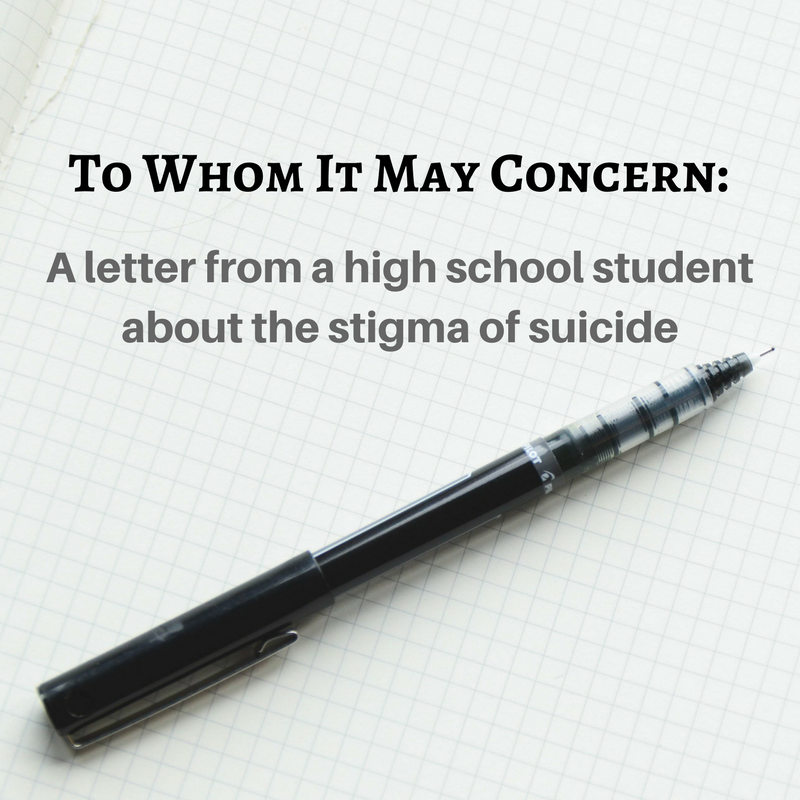
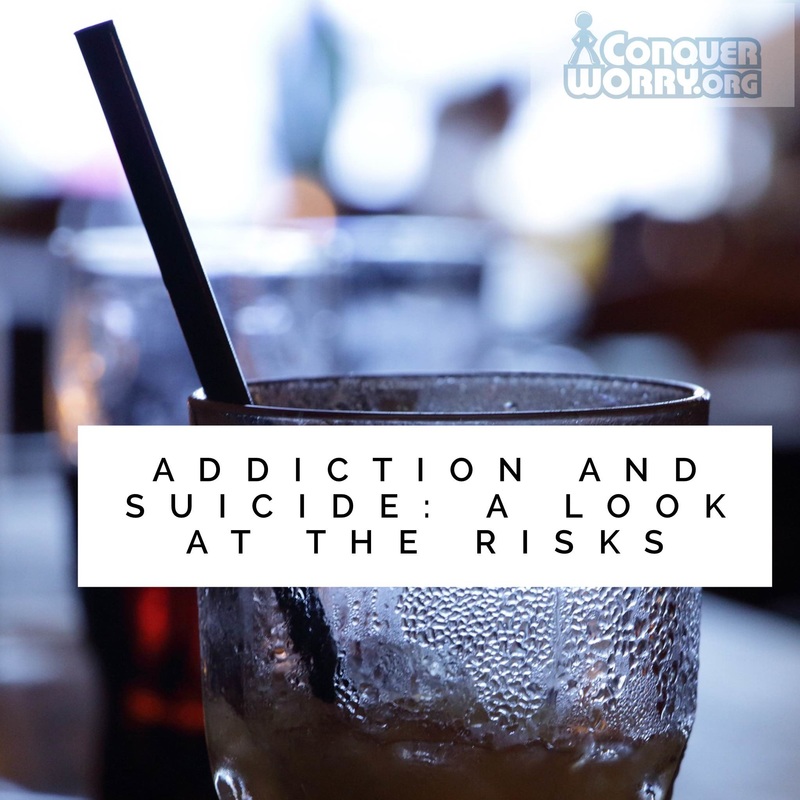

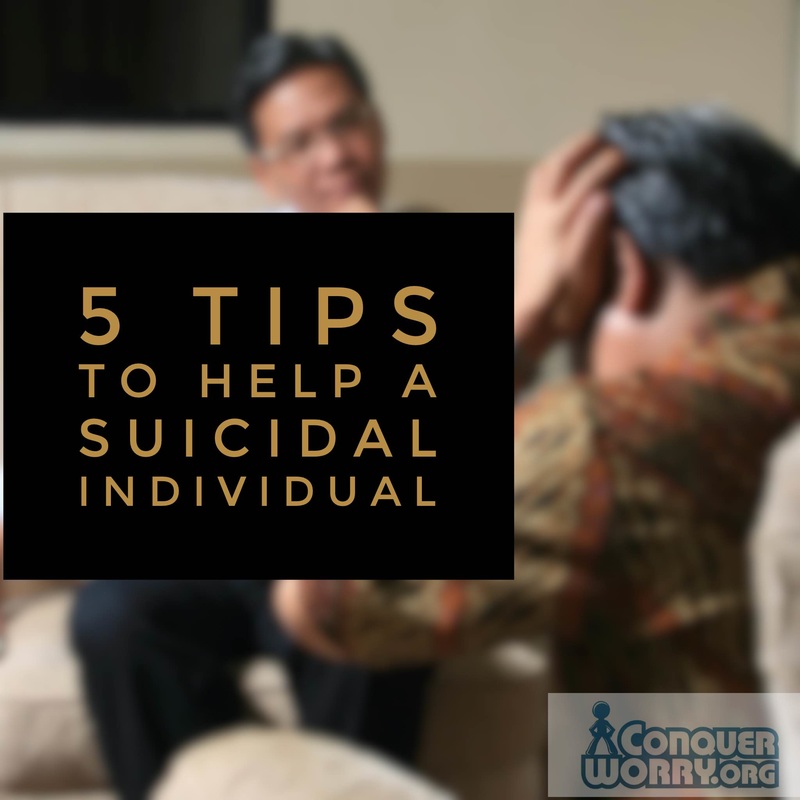
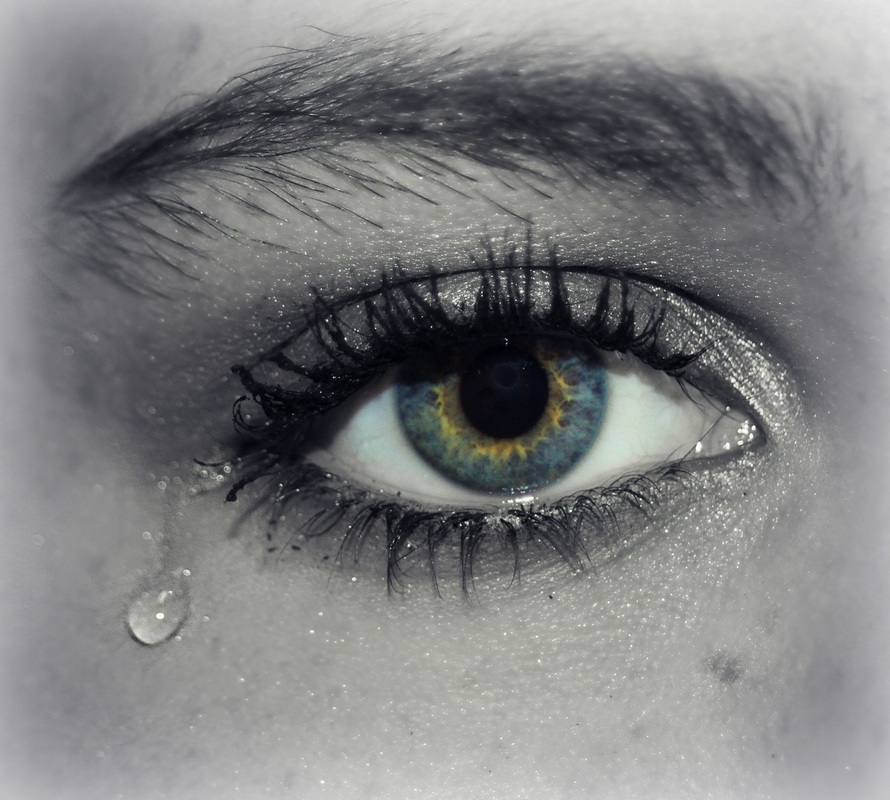
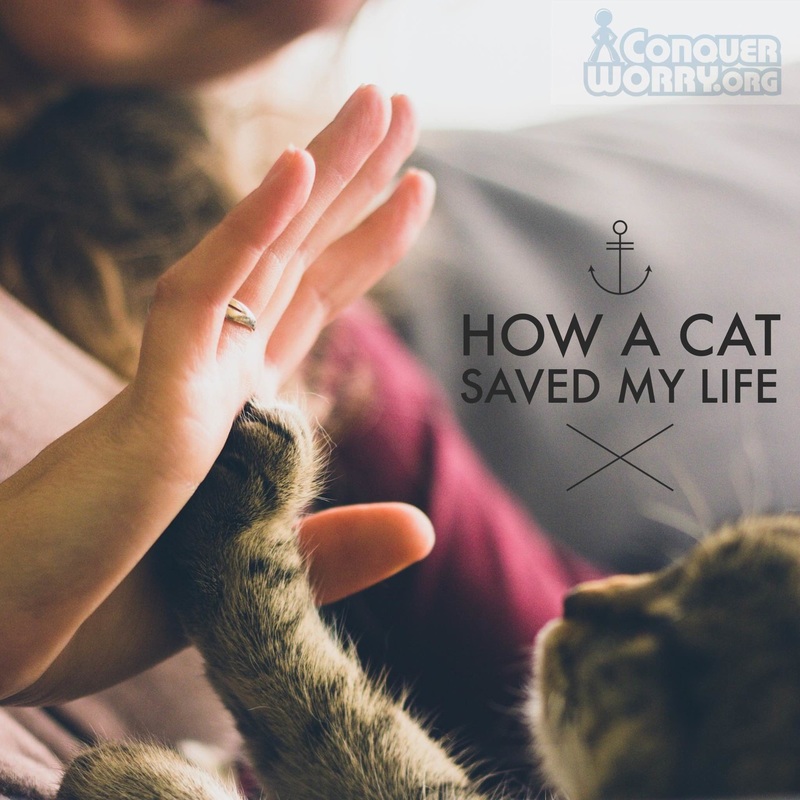


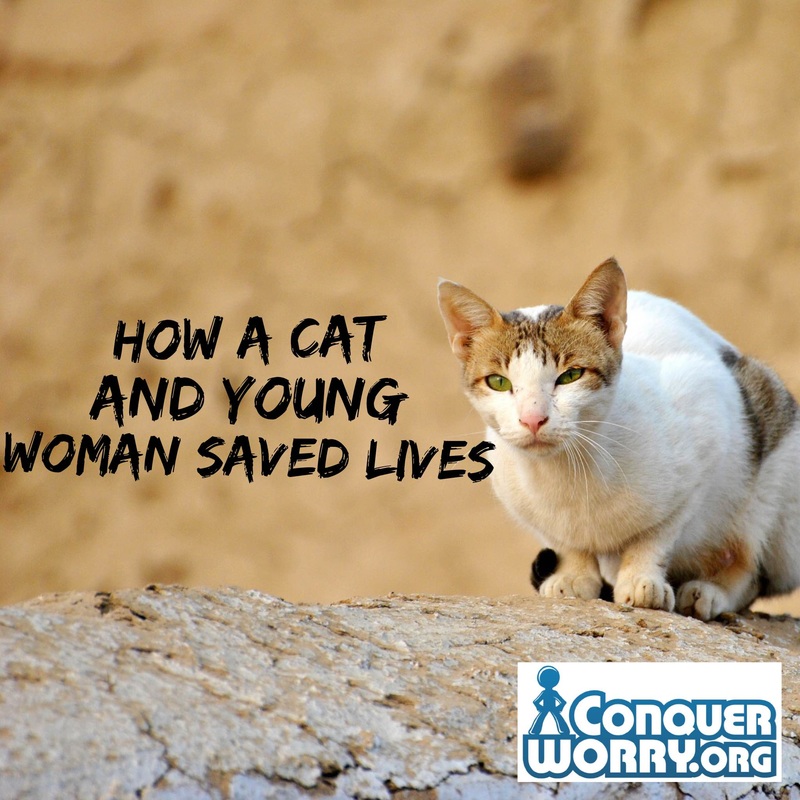
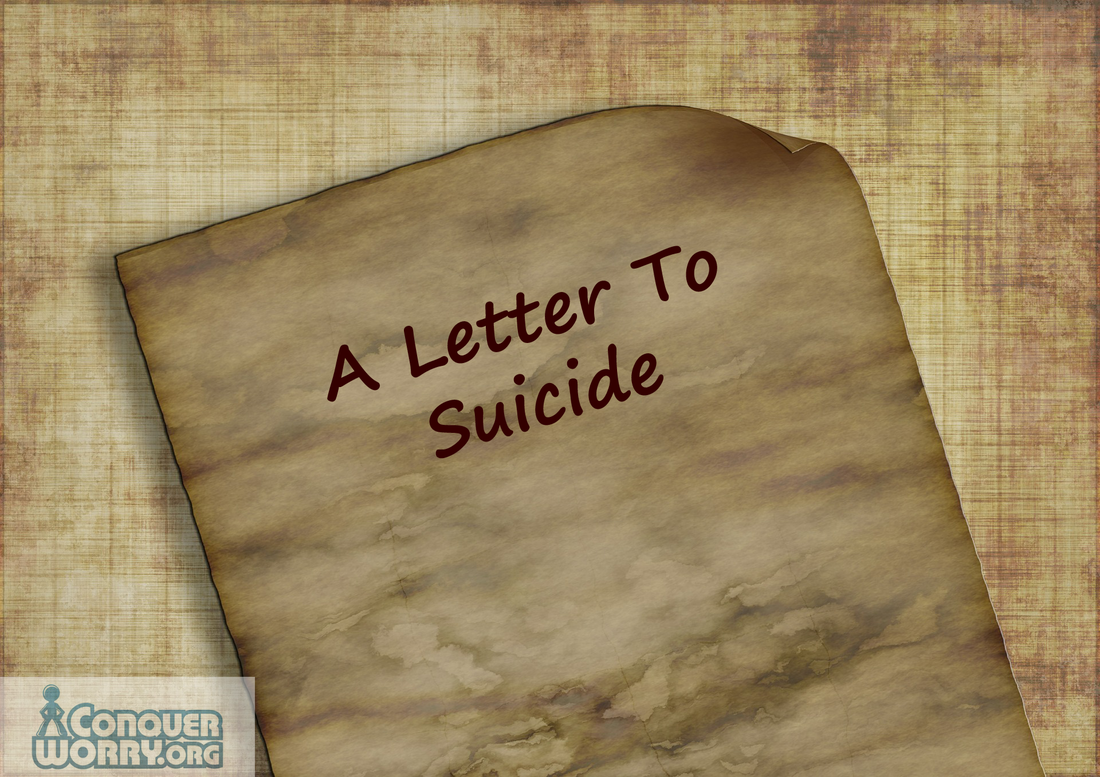
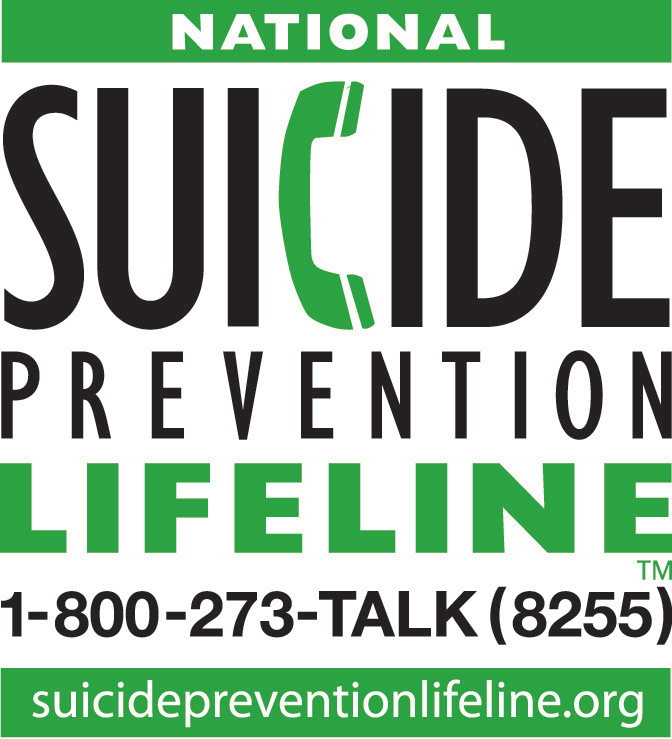

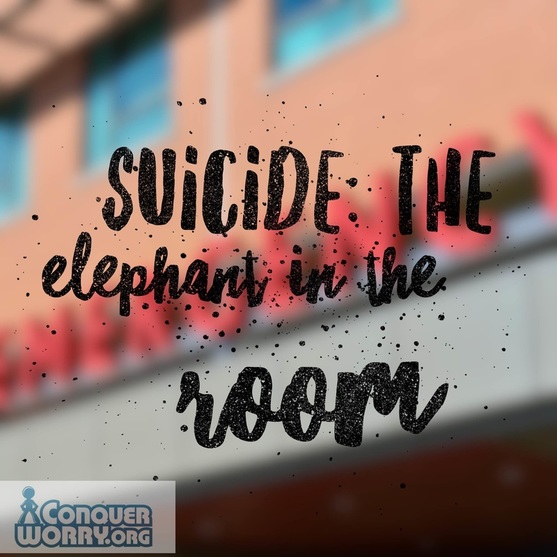
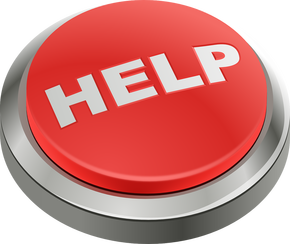
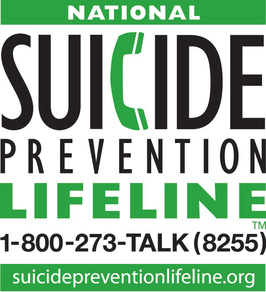

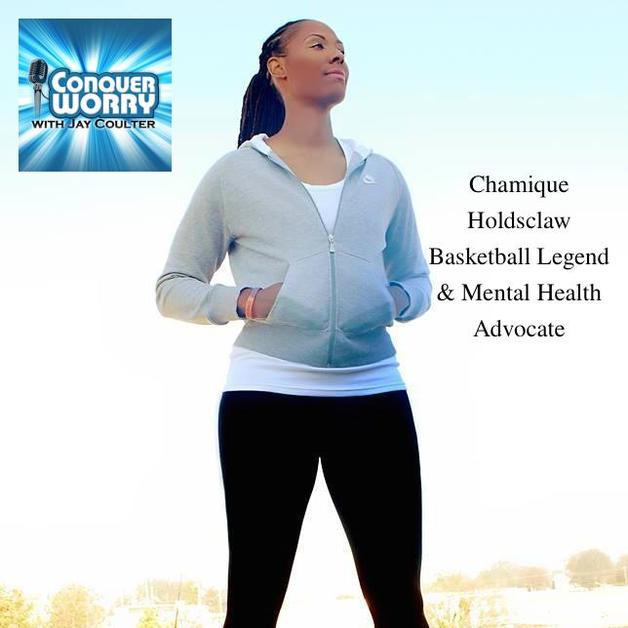
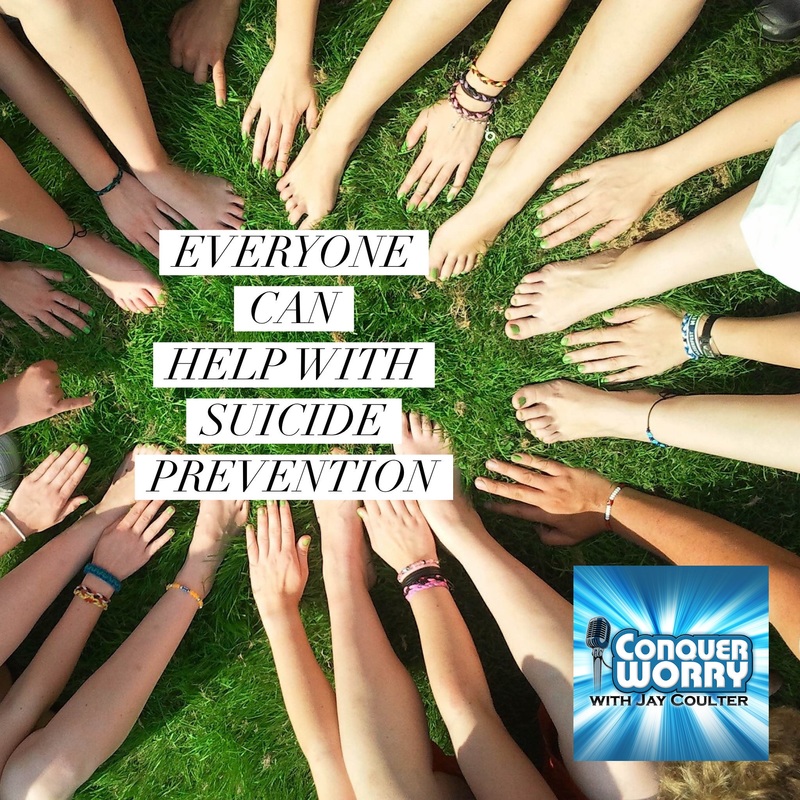
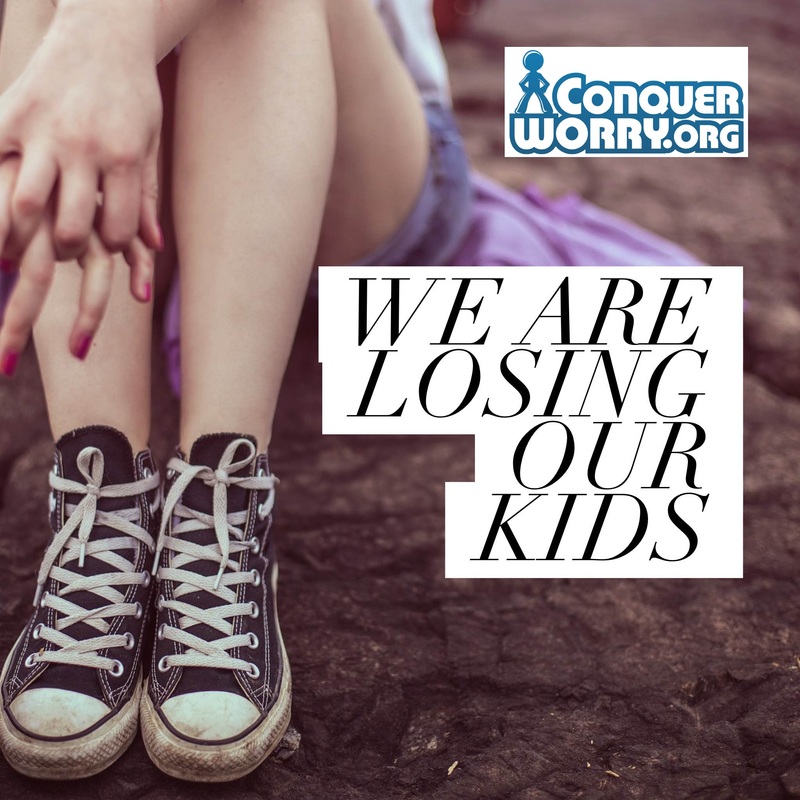

 RSS Feed
RSS Feed





